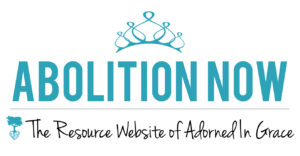
As of December 2018, local jail intelligence tells us that in Multnomah County (OR):
- 595 minors
- 1,191 adults
- 1,059 suspected or prosecuted exploiters
- and 949 cited purchasers/clients
were a part of the booming business of sex trafficking. Four months in numbers–right here in our own zip codes.
Uncovering the Truth
These numbers may seem staggering, but in reality they are incredible undercounts. This is relying on individuals who are coming into contact with the criminal justice system. It’s missing a huge portion of people who are having these experiences.
Any youth under the age of 18 who is trading sex for anything of value is considered a trafficking survivor. Since broadening the definition of the collaboration to include more than CSEC (Commercially Sexually Exploited Children) services, we have seen three times the number of participation across the county and increased survivor identification alongside it.
Traffickers exploit vulnerabilities & unmet needs in people’s lives. This can be housing insecurity, poverty, documentation status, criminal charges that make it difficult to get a job, etc. Those being exploited feel they are making choices to the best of their ability given the circumstances.
We must embrace complexity & nuance, as trafficking situations are rarely simple. Exploiters can be anyone from a caregiver, family member, intimate partner, or a member of organized crime. Tribal women/youth, minorities, and homeless or runaway youth continue to be the populations affected the highest.
Traffickers exploit vulnerabilities & unmet needs in people’s lives. This can be housing insecurity, poverty, documentation status, criminal charges that make it difficult to get a job, etc. Those being exploited feel they are making choices to the best of their ability given the circumstances.
New Reasons for Hope
In the midst of so much complexity and pain, it can be easy to lose heart. But this year, several exciting improvements are taking place. One is the change in law so that law enforcement is no longer arresting and prosecuting minors for prostitution – charges that can never be expunged from their records. Along with this, organizations like Raphael House are now offering services through age 25, recognizing that 18 or 20 year-olds can still be trafficked.
Second, Amnesty Bill SB596 will be taking effect this year, granting amnesty to anyone who reports a person-to-person felony (including trafficking). These changes will dramatically change the rights given to survivors and their chances at transitioning to a healthy life.
How the Church Can Be a Light in this Dark Issue
However, we believe that ending sex trafficking is not just the responsibility of courts and law enforcement. At Compassion Connect, we believe there is also a crucial hole best filled by ordinary churches and people like you. As the body of Christ, we have the incredible opportunity to prevent trafficking by investing in the lives of vulnerable youth right here in our cities. If traffickers can recognize and exploit unmet needs in their lives, then it is up to us step upstream and beat them to it. We need to be a safe and committed presence these youth can trust as they navigate the unique challenges of their lives.
If traffickers can recognize and exploit unmet needs in [the lives of youth] then it is up to us to step upstream and beat them to it. We need to be a safe and committed presence these youth can trust as they navigate the unique challenges of their lives.
Everyone can do something to prevent sex trafficking. At Compassion Connect, some of the avenues we offer include volunteer opportunities such as mentoring young women and men at Design Studios, helping with annual outreach events such as Dress for FREEdom, spreading awareness and raising funds at Adorned in Grace Bridal Shops, and more.
Together, we can take small steps that ripple into big impact. Together, we can turn our awareness into action and see the end of exploitation in our communities.

